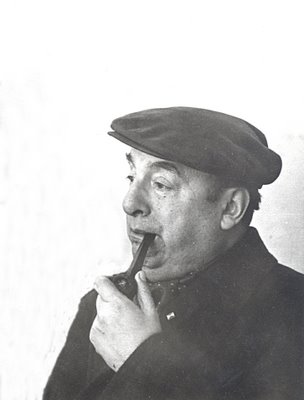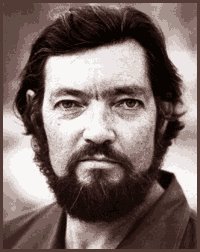Just Follow The Directions

The gentleman with the pipe is Pablo Neruda (1904-1973), poet extraordinaire, who wrote this remarkable poem:
What's wrong with you, with us,
what's happening to us?
Ah our love is a harsh cord
that binds us wounding us
and if we want
to leave our wound,
to separate,
it makes a new knot for us and condemns us
to drain our blood and burn together.
What's wrong with you? I look at you
and I find nothing in you but two eyes
like all eyes, a mouth
lost among a thousand mouths that I have kissed, more beautiful,
a body just like those that have slipped
beneath my body without leaving any memory.
And how empty you went through the world
like a wheat-colored jar
without air, without sound, without substance!
I vainly sought in you
depth for my arms
that dig, without cease, beneath the earth:
beneath your skin, beneath your eyes,
nothing,
beneath your double breast scarcely
raised
a current of crystalline order
that does not know why it flows singing.
Why, why, why,
my love, why?
And who also said, "Anyone who doesn't read Cortázar is doomed."
 The gentleman with the bushy hair and intense beard is Julio Cortazar (1914-1984). He explained his fiction and himself this way:
The gentleman with the bushy hair and intense beard is Julio Cortazar (1914-1984). He explained his fiction and himself this way:"Yo creo que desde muy pequeño mi desdicha y mi dicha al mismo tiempo fue el no aceptar las cosas como dadas. A mí no me bastaba con que me dijeran que eso era una mesa, o que la palabra "madre" era la palabra "madre" y ahí se acaba todo.
Al contrario, en el objeto mesa y en la palabra madre empezaba para mi un itinerario misterioso que a veces llegaba a franquear y en el que a veces me estrellaba.
En suma, desde pequeño, mi relación con las palabras, con la escritura, no se diferencia de mi relación con el mundo en general. Yo parezco haber nacido para no aceptar las cosas tal como me son dadas."
Which might, if we let it, bring us to Borges. Borges wrote about Cortazar, "No one can retell the plot of a Cortázar story; each one consists of determined words in a determined order. If we try to summarize them, we realize that something precious has been lost." And, of course, Cortazar wrote about Borges here.
So we go round and round following the yellow brick road. Saved for another day, a long discussion of Neruda's and Cortazar's politics, which I, and Manuel Acero, just love!






0 Comments:
Publicar un comentario
<< Home